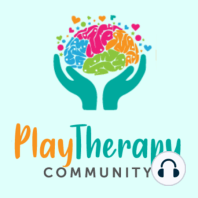28 min listen

54: Eating Disorder Recovery through Group Therapy Lucy Lauer, LMHC
54: Eating Disorder Recovery through Group Therapy Lucy Lauer, LMHC
ratings:
Length:
44 minutes
Released:
Apr 27, 2017
Format:
Podcast episode
Description
Lucy Lauer, is a Licensed Mental Health Counselor with 26 years’ experience as a Registered Dietitian. She specializes in helping people navigate the rough waters of disordered eating to achieve a healthier life and relationship with food. She has experience with Anorexia Nervosa, Bulimia Nervosa, Binge Eating Disorder, Nocturnal Eating Disorder, and the range of dysfunctional eating patterns that cause distress but may not have a diagnostic label. In 35 years of practice, Lucy has treated disordered eating from both a nutritional and psychological perspective. She has presented workshops at the local, state and national level on many aspects of disordered eating for psychologists and counselors, physicians, dietitians, parents and teachers. She established and facilitated the Space Coast Eating Disorders Professional Consortium from 2009-2011, and supervises Florida Tech Psychology students in a special practicum focused on Eating Disorder treatment. She participates regularly in continuing education programs and has had over 60 hours of specialized training in ED treatment in the last 3 years alone. Specific topics have included ACT and other evidence-based interventions, medical complications, trauma impact, co-occurring disorders (substance abuse, self-injury, etc), assessment for appropriate level of care, body image, art and other expressive therapies, and using a team approach to treatment. She has also been invited to site visits at residential treatment centers in South Florida and Colorado. What are the various types of eating disorders? Anorexia Nervosa, Bulimia Nervosa, Binge Eating Disorder Since eating disorders have a direct impact on physical health as well, tell us a bit about the team approach to treatment when collaborating with Registered Nutritionists, Physicians, etc... The gold standard of ED treatment involves a team of clinicians working together. The team consists of a mental health counselor or psychologist, Registered Dietitian (RD), primary care physician, and if needed, a psychiatrist. In an out-patient setting, it is usually the mental health clinician who coordinates care by communicating with other team members re. treatment goals, progress toward goals, and psychoeducation, as needed. The RD monitors weight, food intake and specific food-related issues and may also help set exercise goals. Medical parameters such as labs, EKGs and bone-density are ordered by the PCP and shared with other team members as markers for progress. When all team members are not under the same roof (which is usually the case), communication is done through phone calls, written assessments and updates and occasionally, face-to-face team meetings. If the client is a minor, the parents are also part of the team and are included in treatment planning, progress updates and psychoeducation so they can more effectively support their child’s recovery. Many people with an eating disorder have a fear of recovery. Talk a bit about this and how a clinician can work with someone resistant about recovering from their eating disorder. An eating disorder is experienced as a life-raft in the rough sea of uncertainty that is a normal part of life. Despite the fact that eating disorders are deadly and create enormous physical and psychological pain, they also serve important functions such as protection from intrusion, a sense of control when life feels chaotic, a way to make complex issues seem more manageable and many others. In order to help a person let go of this safety net, the clinician has to help them: 1) recognize the costs to other valued parts of their lives such as relationships, energy & concentration for other persuits; 2) Identify the functions of the ED and Develop other ways to address those. This often requires practicing acceptance of the inherent uncertainty of life, imperfection of themselves and others, and the messiness of living in a human body with all of its flaws and limitations. Sometimes,
Released:
Apr 27, 2017
Format:
Podcast episode
Titles in the series (100)
07: A Passionate Play Therapist Shares Her Love for the Nurtured Heart Approach: Tammi VanHollander by Play Therapy Community